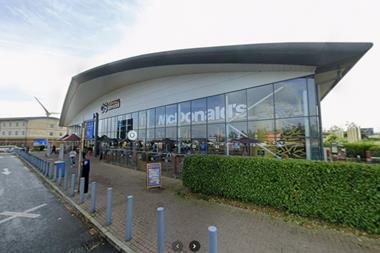A majority of EV users who responded to a survey have admitted they have charged dangerously, and blamed it on an absence of local public charging points.
Consumer protection charity Electrical Safety First surveyed 1,500 electric vehicle owners, including both all electric and hybrids, revealing that 74% believe that a lack of public charging points near their home has led them to use domestic multi-socket extension leads, not suitable for outdoor use, to charge from the mains in their home. This is despite almost nine out of 10 respondents admitting they’re aware these should not be used outside.
Over half of EV users who charge with the aid of an extension lead, meanwhile, have left cables running to their vehicle when it’s been raining.
The research also found 75% of those who charge using a domestic extension lead admit to ‘daisy-chaining’ extension leads to reach their vehicle – a method whereby multiple extension leads are plugged into one another to cover a longer distance.
Daisy-chaining is advised against in all circumstances due to the heightened risk of electric shock and or fire.
With the Government’s aim for all cars to be effectively zero emission by 2040, Electrical Safety First believes public infrastructure for electric vehicles must be adequate to cater to the needs of owners in order to avoid dangerous charging habits in the home.
Martyn Allen, technical director at Electrical Safety First, commented: “Our research shows a direct link between a lack of electric vehicle infrastructure and vehicle owners charging dangerously. A modern Britain also needs to be a safe one and Electrical Safety First is urging the government and local authorities to ensure that the infrastructure is in place to support the rapid increase in numbers of electric vehicles on our roads.
“With regards to consumers, we warn EV users against giving in to temptation to use standard domestic extension leads to charge their vehicles outside, and never to ‘daisy-chain’ them together. We recommend taking advantage of the Government’s grant scheme which will contribute towards the cost of a specially designed home charging point. This is safer than charging from the mains, using a standard extension lead.”

































No comments yet